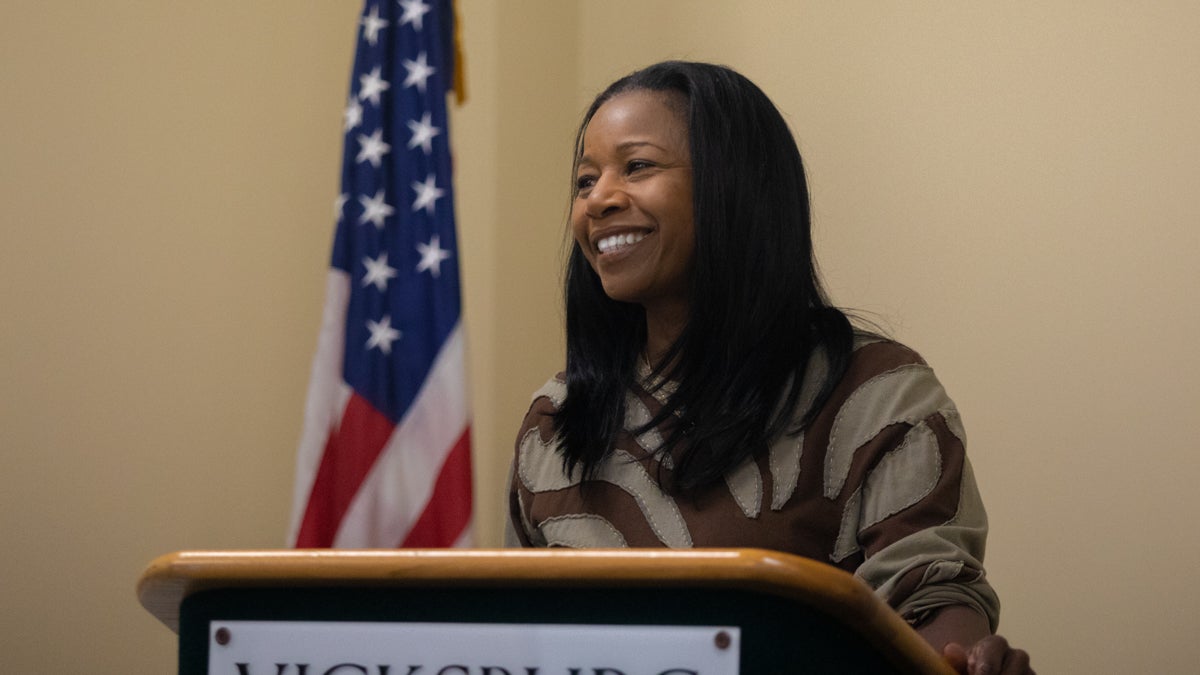Taste of Vicksburg recognizes local Black history
Published 1:08 pm Tuesday, February 28, 2023

- Linda Fondren and three other guest speakers she invited spoke about Vicksburg’s Black history at the Taste of Vicksburg program held on Feb. 24 at the Vicksburg Convention Center. Topics of discussion included the history of the Utica Institute, the National Park Service’s effort to recover and identify the remains of Black Civil War soldiers, and the legacy of William Sims, a Black soldier who participated in the blood Battle of Milliken's Bend at the siege of Vicksburg. (Photo by Ben Martin | The Vicksburg Post)
The monthly Taste of Vicksburg program returned for its second season at the Vicksburg Convention Center on Friday.
Four guest speakers discussed the topic for February’s luncheon, Vicksburg Black History. Linda Fondren, the Executive Director of the Catfish Row Museum, was the featured guest and introduced the other three speakers she had invited to the lunch.
“Black history is not just African American history; it’s American history,” Fondren said. “And I think that Black History Month is here to help us remember what we need to remember, not necessarily what we want to remember.”
Fondren first introduced Kerry Taylor, Professor at Virginia College in Jackson, to address the audience.
Taylor discussed the history of the Utica Institute, a historically Black college founded in 1903 in Utica, Miss., by William Holtzclaw.
Holtzclaw was a student of Booker T. Washington at Tuskegee University in Alabama. Taylor said Holtzclaw rode his bike from Tuskegee to Utica with nothing but $2 in his pocket, with the intent of setting up a “little Tuskegee” in Utica. Taylor succeeded in the endeavor.
“The institution was uniquely positioned to help improve the lives of those in Mississippi in the Black Belt, emphasizing land ownership, community connection and history through the eyes of their people,” Taylor said.
Taylor himself was born in Utica, and his grandparents had received assistance from the university on their 400-acre farm in the area.
Next to speak was John Schweikart, an archeologist at the Vicksburg National Military Park. One of the topics Schweikart spoke about was the National Park Service’s effort to identify the remains of Black soldiers who fought in the siege of Vicksburg.
“It has taken three years. It is a massive-scale project. Nothing like this has ever been done on the national cemetery before anywhere,” Schweikart said. “There are more United States Colored Troops buried here at Vicksburg than anywhere else.”
Despite making up around 10 percent of fighting forces during the Civil War, Black soldiers make up around 50 percent of soldiers’ remains that are still unidentified or lost.
“We need to honor those soldiers, give them their identities back, restore their honor that is due. And this isn’t just for African Americans. This is for everyone,” Schweikart said.
The last to speak was Thelma Sims Dukes, the great-granddaughter of William “Bill” Sims, a Black soldier who fought for the Union and participated in the Battle of Milliken’s Bend during the siege.
“Some of the men in the first regiment had received their guns the night before,” Dukes said. “They were poorly trained and poorly led.”
Dukes said that the men were forced to resort to using bayonets during the bloody action in which 101 men fighting alongside Sims were killed. A former slave, Sims survived the war and purchased 100 acres just east of Vicksburg, in the Freetown community, and lived to be 96 years old.
Sims is now represented in a monument carved from black African granite in the military park which commemorates the sacrifices of Black soldiers who participated in the Vicksburg Campaign.





